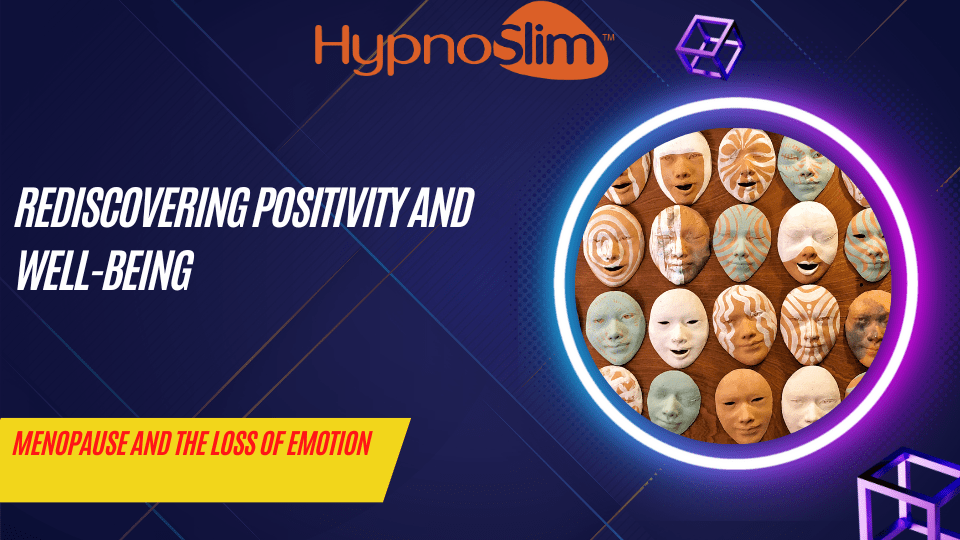No products in the basket.
Weight Loss
Menopause and the Loss of Emotion
Menopause and the Loss of Emotion: Rediscovering Positivity and Well-being
Menopause is a natural biological process that marks the end of a woman's reproductive years. While it is often associated with physical symptoms such as hot flashes and hormonal changes, it can also bring about emotional and psychological shifts. One common experience reported by many women during menopause is a loss of emotion or a sense of emotional numbness. There are many reasons for this phenomenon and I’d like to suggest some strategies to help boost positivity and well-being during this transitional phase.
Causes of Loss of Emotion during Menopause:
Hormonal fluctuations:
The decline in estrogen and progesterone levels during menopause can affect brain chemistry, leading to mood swings, irritability, and emotional instability.
Psychological factors:
Menopause can coincide with significant life changes, such as empty nesting or career transitions, which can contribute to feelings of loss, sadness, or confusion.
Physical discomfort:
Sleep disturbances, fatigue, and other physical symptoms associated with menopause can leave women feeling drained, making it challenging to engage with emotions.
Boosting Positivity during Menopause:
Self-care practices:
Prioritise self-care activities that bring joy and relaxation.
Engage in regular exercise, eat a balanced diet, and practice mindfulness or meditation to reduce stress and promote emotional well-being.
Seek support:
Connect with friends, family, or support groups of women going through menopause. Sharing experiences and concerns can provide validation and emotional support.
Express emotions:
Explore creative outlets like journaling, painting, or playing music to express and process emotions. Engaging in activities that ignite passion and curiosity can help restore a sense of purpose and fulfilment.
Hormonal Therapy:
Consult with a healthcare professional to discuss the potential benefits of hormone replacement therapy (HRT) or other medical interventions to alleviate physical and emotional symptoms.
Professional help:
If the loss of emotion persists and significantly affects daily life, consider seeking professional help from a Hypnotherapist or other therapist who specialises in menopause-related issues.
Menopause can be a challenging and transformative phase for women, marked by hormonal fluctuations and emotional shifts. While the loss of emotion during this period is not uncommon, it is essential to prioritise self-care, seek support, and explore strategies to boost positivity.
By incorporating some of these practices into your life, you have a stronger chance at navigating this transition with a renewed sense of well-being, reclaiming emotional vitality and embracing the next chapter of your life with positivity and resilience.

